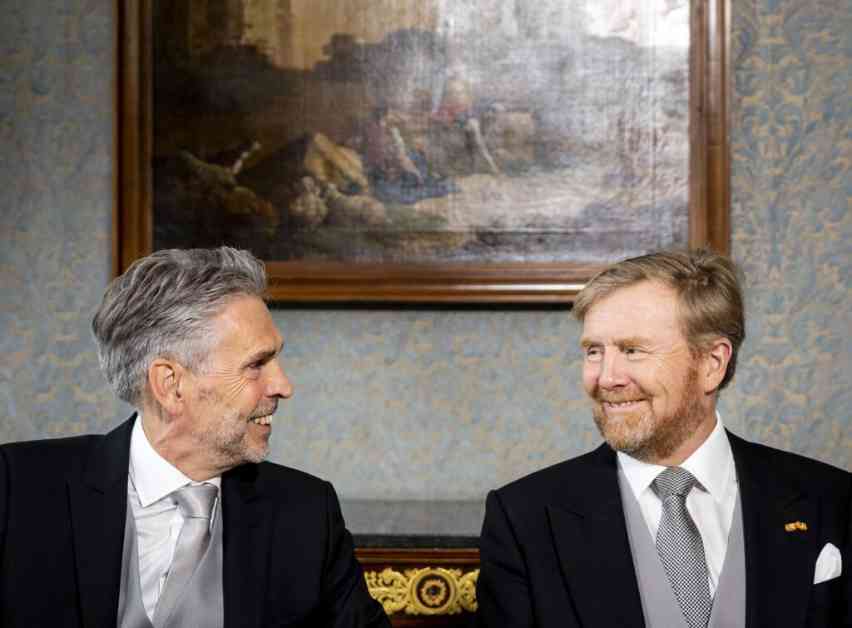The new ministers of the Schoof Cabinet were sworn in today at Palace Huis ten Bosch by King Willem-Alexander. The ministers then gathered for their first meeting to begin their work. Let’s get to know the team that will be leading the government.
After over seven months since the elections, the Schoof Cabinet is finally taking office. The ministers and state secretaries were sworn in by King Willem-Alexander. The new cabinet’s ministers were also presented on the steps of the palace. They will now have to work together to fulfill the agreements made between the parties in the coalition – the PVV, VVD, NSC, and BBB – in a coalition agreement.
One of the most significant changes is the transfer of the symbolic keys to the Prime Minister’s office, known as the Torentje, to Dick Schoof, the new Prime Minister. This marks the official departure of outgoing Prime Minister Mark Rutte.
Let’s take a closer look at some of the key ministers in the Schoof Cabinet:
– Judith Uitermark (52) from the NSC is the Minister of Home Affairs and Kingdom Relations. She previously worked as a judge and national coordinator for mediation in criminal cases.
– Sophie Hermans (43) from the VVD is the Minister of Climate and Green Growth. She has been a member of the Tweede Kamer since 2017 and was the parliamentary leader of the VVD in the previous government.
– Eelco Heijnen (43) from the VVD is the Minister of Finance. He previously worked as a policy advisor in the ministry he now leads.
– David van Weel (47) from the VVD is the Minister of Justice and Security. He comes from the NATO headquarters in Brussels, where he served as the right-hand man to Secretary-General Jens Stoltenberg.
– Mona Keijzer (55) from the BBB is the Minister of Housing, Spatial Planning, and the Environment. She previously served as State Secretary for Economic Affairs in the previous government.
These are just a few of the ministers in the new Schoof Cabinet, each bringing their own expertise and experience to their respective ministries. As they begin their work, they will be faced with a range of challenges and responsibilities in guiding the country forward.

